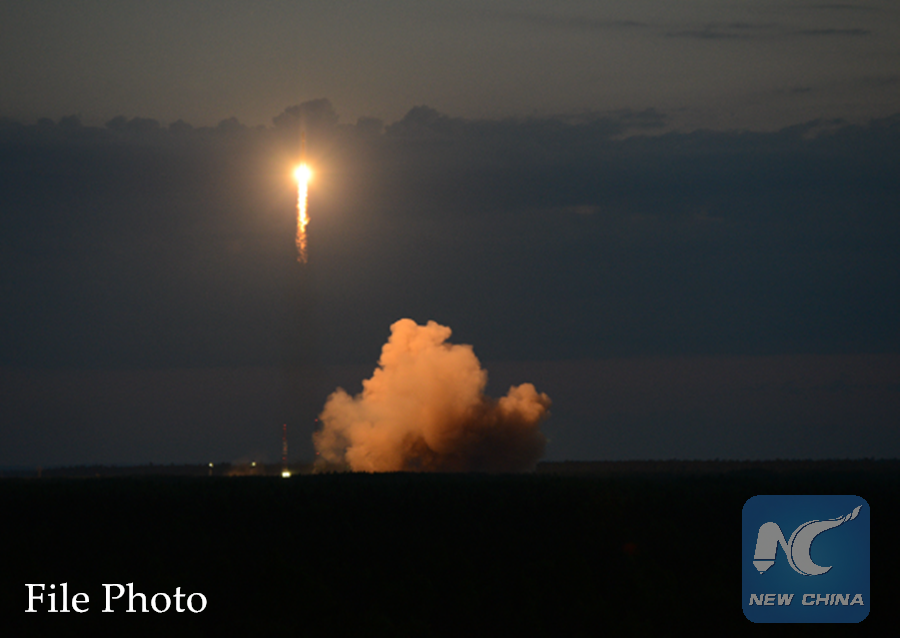
Photo taken on June 17, 2018 shows the launch of a Soyuz-2.1b carrier rocket with a Glonass-M positioning satellite from the Plesetsk space center in Russia's Arkhangelsk province. (Russian Defense Ministry)
MOSCOW, July 2 (Xinhua) -- Russia plans to launch a new generation navigation satellite GLONASS-K2 in 2022, TASS news agency reported Monday.
It quoted Nikolay Testoyedov, chief executive officer of the satellite's developer, Information Satellite Systems Reshetnev (ISS Reshetnev), as saying that the new satellite will provide higher accuracy for determining coordinates and will not have foreign-made components.
"After the approval of the conceptual design, we will switch over to the stage of working out the design documentation, and then we will create a prototype and start its experimental testing," Testoyedov said.
Russia's GLONASS, which stands for Global Navigation Satellite System, is a rival of the U.S. Global Positioning System (GPS) and Europe's Galileo global satellite-based navigation system.
It currently consists of 24 operating satellites, while several more are in reserve either in space or on earth ready to be launched in case of emergency.
The GLONASS-K2 will be transmitting nine navigation signals. It will weigh about 1,800 kilograms or twice as much as the previous generation Glonass-K1.
Overall, two or three satellites will be made for flight tests to confirm their operational characteristics. After that, the government commission will make a decision on launching their serial production, Testoyedov said.
The satellites may be launched by a Soyuz-2 carrier rocket from the Plesetsk spaceport in the country's north or by a newer Angara rocket from the Vostochny in the Russian Far East, he said.

